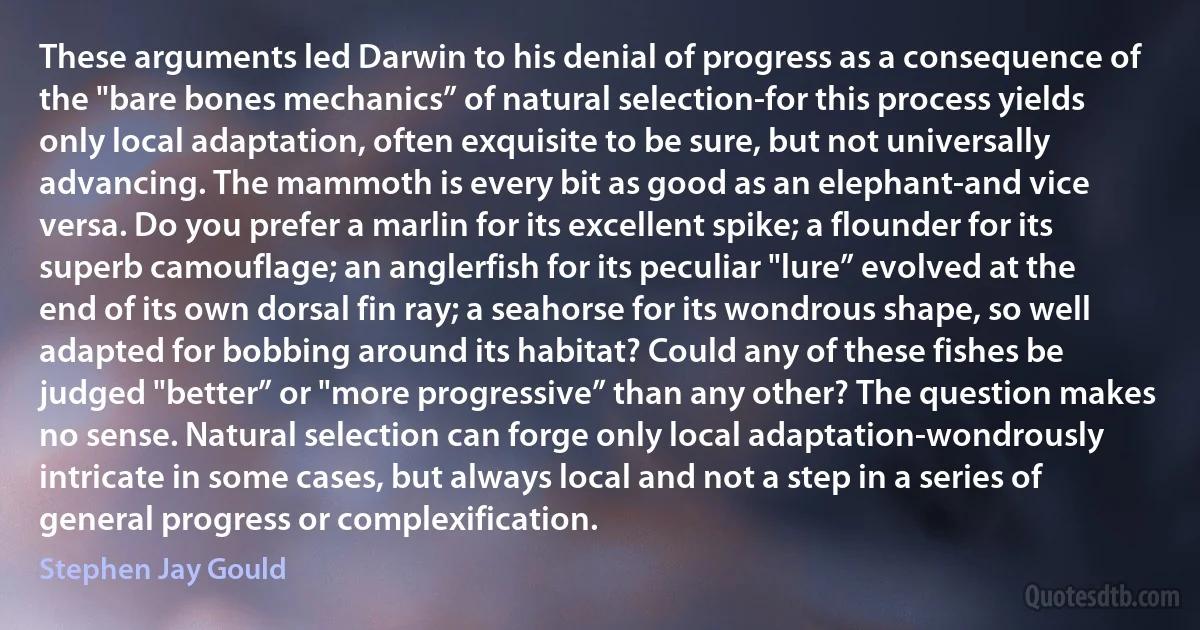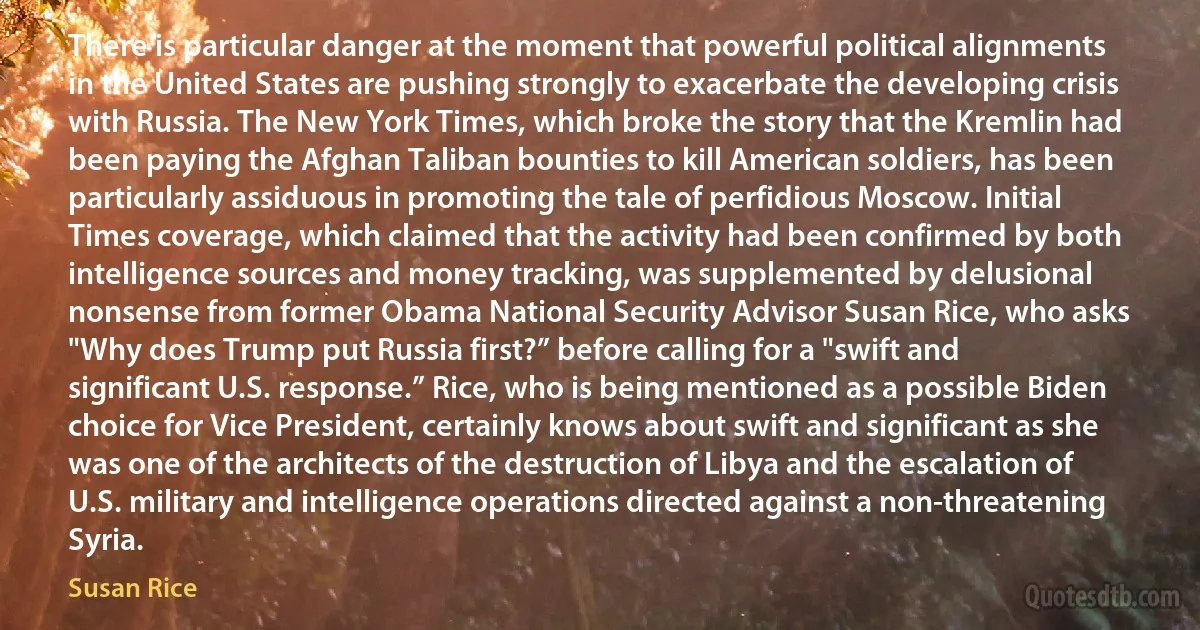Vice Quotes - page 34
I had a great many prejudices that have since dissolved. But what I still hate about the women's movement is their insistence upon male piety in relation to it. I don't like bending my knee and saying I'm sorry, mea culpa. I find now that women have achieved some power and recognition they are quite the equal of men in every stupidity and vice and misjudgment that we've exercised through history.
They're narrow-minded, power seeking, incapable of recognizing the joys of a good discussion. The women's movement is filled with tyrants, just as men's political movements are equally filled.
What I've come to discover are the negative sides, that women are no better than men. I used to think - this is sexism in a way, I'll grant it - that women were better than men. Now I realize no, they're not any better.

Norman Mailer
Hence turn your looks to the abominations, not less to be deplored, of another kind of spectacle. In the theatres also you will behold what may well cause you grief and shame. It is the tragic buskin which relates in verse the crimes of ancient days. The old horrors of parricide and incest are unfolded in action calculated to express the image of the truth, so that, as the ages pass by, any crime that was formerly committed may not be forgotten. Each generation is reminded by what it hears, that whatever has once been done may be done again. Crimes never die out by the lapse of ages; wickedness is never abolished by process of time; impiety is never buried in oblivion. Things which have now ceased to be actual deeds of vice become examples.

Cyprian
I tell you one of the most aggravating things of all is to pick up a review of a work of mine and have a reviewer say, "She is a natural writer." That sometimes will make me so angry that I will cry, really, because my intent is to write so it seems to flow. I think it's Alexander Pope who says, "Easy writing is damn hard reading," and vice versa, easy reading is damn hard writing. Sometimes I will stay up in my room for a day trying to get two sentences that will flow, that will just seem as if they were always there.

Maya Angelou
As excited as I am to be here with the president, I am appalled to be surrounded by the liberal media that is destroying America - with the exception of Fox News. Fox News gives you both sides of every story: the president's side, and the vice president's side. But the rest of you, what are you thinking, reporting on NSA wiretapping or secret prisons in eastern Europe? Those things are secret for a very important reason: they're super-depressing. And if that's your goal, well, misery accomplished. Over the last five years you people were so good - over tax cuts, WMD intelligence, the effect of global warming. We Americans didn't want to know, and you had the courtesy not to try to find out. Those were good times, as far as we knew.

Stephen Colbert
Even the most wretched individual of our present society could not exist and develop without the cumulative social efforts of countless generations. Thus the individual, his freedom and reason, are the products of society, and not vice versa: society is not the product of individuals comprising it; and the higher, the more fully the individual is developed, the greater his freedom - and the more he is the product of society, the more does he receive from society and the greater his debt to it.

Mikhail Bakunin
Our job is to reclaim America for Christ, whatever the cost. As the vice regents of God, we are to exercise godly dominion and influence over our neighborhoods, our schools, our government, our literature and arts, our sports arenas, our entertainment media, our news media, our scientific endeavors -- in short, over every aspect and institution of human society.

James Kennedy (televangelist)
Generations follow, oblivious of the high beginnings, but there is that in the stock which is fated to endure. The sons and daughters blunder and sin and perish, but the race goes on, for there is a fierce stuff of life in it. It sinks and rises again and blossoms at haphazard into virtue or vice, since the ordinary moral laws do not concern its mission. Some rags of greatness always cling to it, the dumb faith that sometime and somehow that blood drawn from kings it never knew will be royal again. Though nature is wasteful of material things, there is no waste of spirit. And then after long years there comes, unheralded and unlooked-for, the day of the Appointed Time...

John Buchan
I am oppressed with a sense of the impropriety of uttering words on this occasion. If silence is ever golden, it must be here, beside the graves of fifteen thousand men, whose lives were more significant than speech, and whose death was a poem, the music of which can never be sung. With words we make promises, plight faith, praise virtue. Promises may not be kept, plighted faith may be broken, and vaunted virtue be only the cunning mask of vice. We do not know one promise these men made, one pledge they gave, one word they spoke: but we do know they summed up and perfected, by one supreme act, the highest virtues of men and citizens. For love of country they accepted death, and thus resolved all doubts, and made immortal their patriotism and their virtue.

James A. Garfield
According to the seventeenth-century way of thinking, an atheist was by definition a decadent. If there was no God (or, at least, no providential, rewarding-and-punishing God of the sort worshipped in all the traditional religions), the reasoning went, then everything is permitted. So a non-beliver would be expected to indulge in all manner of sensual stimulation... to lie, cheat, and steal...
Spinoza, according to all seventeenth-century interpreters, rejected all the traditional ideas about God; he was indesputably a heretic. Yet his manner of living was humble and apparently free of vice. Then, as now, the philosopher seemed a living oxymoron: he was an ascetic sensualist, a spiritual materialist, a sociable hermit, a secular saint. How could his life have been so good, the critics asked, when his philosophy was so bad?

Baruch Spinoza
I wish the art of benefiting men had kept pace with the art of destroying them; for though war has become slow, philanthropy has remained hasty. The most melancholy of human reflections, perhaps, is that, on the whole, it is a question whether the, benevolence of mankind does most good or harm. Great good, no doubt, philanthropy does, but then it also does great evil. It augments so much vice, it multiplies so much suffering, it brings to life such great populations to suffer and to be vicious, that it is open to argument whether it be or be not an evil to the world, and this is entirely because excellent people fancy that they can do much by rapid action - that they will most benefit the world when they most relieve their own feelings; that as soon as an evil is seen "something" ought to be done to stay and prevent it.

Walter Bagehot
Heaven and Hell suppose two distinct species of men, the good and the bad; but the greatest part of mankind float betwixt vice and virtue. -- Were one to go round the world with an intention of giving a good supper to the righteous, and a sound drubbing to the wicked, he would frequently be embarrassed in his choice, and would find that the merits and the demerits of most men and women scarcely amount to the value of either.

David Hume
You see, when a nation threatens another nation the people of the latter forget their factionalism, their local antagonisms, their political differences, their suspicions of each other, their religious hostilities, and band together as one unit. Leaders know that, and that is why so many of them whip up wars during periods of national crisis, or when the people become discontented and angry. The leaders stigmatize the enemy with every vice they can think of, every evil and human depravity. They stimulate their people's natural fear of all other men by channeling it into a defined fear of just certain men, or nations. Attacking another nation, then, acts as a sort of catharsis, temporarily, on men's fear of their immediate neighbors. This is the explanation of all wars, all racial and religious hatreds, all massacres, and all attempts at genocide.

Taylor Caldwell
I think it was last weekend, I was watching C-SPAN, and I saw Vice President Dick Cheney, and he was being asked questions about a whole host of issues - following 9/11, the affairs in various countries in the world. And I listened to him speak and said whether you agree or disagree with him, this a man of wisdom and judgment, and he could have been president of the United States. That's the kind of person I'd like to have - a person of wisdom and judgment.

Mitt Romney
We learn particularly from the Timaeus of Plato, that the Egyptians believed the world to be subject to occasional conflagrations and deluges, whereby the gods arrested the career of human wickedness, and purified the earth from guilt. After each regeneration, mankind were in a state of virtue and happiness, from which they gradually degenerated again into vice and immorality. From this Egyptian doctrine, the poets derived the fable of the decline from the golden to the iron age.

Charles Lyell
Dante has not deigned to take his inspiration from any other. He has wished to be himself, himself alone; in a word, to create. He has occupied a vast space, and has filled it with the superiority of a sublime mind. He is diverse, strong, and gracious. He has imagination, warmth, and enthusiasm. He makes his reader tremble, shed tears, feel the thrill of honor in a way that is the height of art. Severe and menacing, he has terrible imprecations for crime, scourgings for vice, sorrow for misfortune. As a citizen, affected by the laws of the republic, he thunders against its oppressors, but he is always ready to excuse his native city, Florence is ever to him his sweet, beloved country, dear to his heart. I am envious for my dear France, that she has never produced a rival to Dante; that this Colossus has not had his equal among us. No, there is no reputation which can be compared to his.

Napoleon Bonaparte
Algren's characters fail even at failure. They manage to mismanage crime, vice, sin. Nothing is so worthless that it cannot be lost, and Algren's mean streets are revealed by the passing of time to be both as real and as allegorical as Kafka's courtrooms and castles. It is a hell, and it is the ultimate test of our humanity. / Like Chekhov, Algren believed a writer's role was to side with the guilty.

Nelson Algren
Publication by the New York Post two weeks ago of emails from Hunter Biden's laptop, relating to Vice President Joe Biden's work in Ukraine, and subsequent articles from other outlets concerning the Biden family's pursuit of business opportunities in China, provoked extraordinary efforts by a de facto union of media outlets, Silicon Valley giants and the intelligence community to suppress these stories.

Glenn Greenwald



